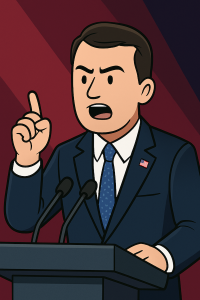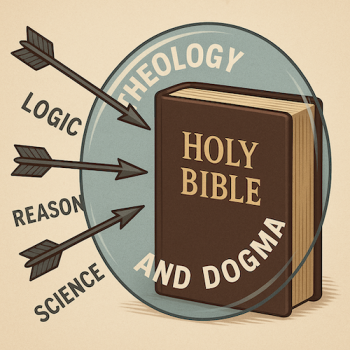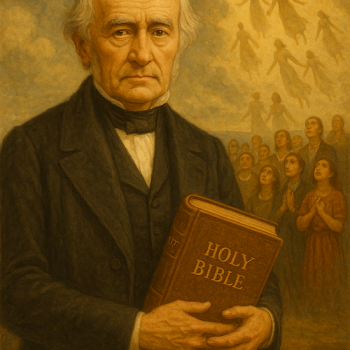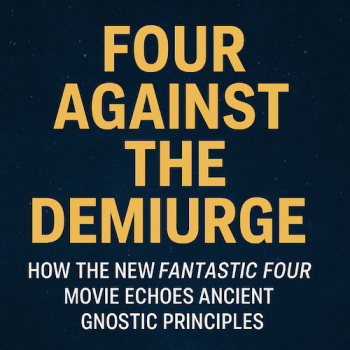
A Critical Reckoning
On September 10, 2025, Charlie Kirk — founder of Turning Point USA, conservative firebrand, champion of Christian nationalism, and relentless provocateur — was shot and killed while speaking at Utah Valley University as part of his “American Comeback Tour.” He was 31. The event was outdoors, meant to galvanize young conservatives, but instead it ended in chaos, blood, and grief. His death was not just the end of a man’s life; it was a flashpoint in the already bitterly divided American political landscape.
This essay is not a eulogy. It is neither an ode nor is it written in the spirit of celebration. I hope this serves as a sober assessment of what Kirk represented, how his rhetoric corroded American civic life, and why his death — tragic though any death may be — must not be transformed into a rallying point for fascism. His murder exposes the contradictions of the movement he embodied, and if history is not careful, his legacy may be whitewashed into martyrdom.
The Flames He Lit: Hatred, Division, Misogyny
I’ve discussed the ills of consrvatism here and here. But Charlie Kirk was no ordinary conservative. He was a culture warrior in the most literal sense, wielding rhetoric not as persuasion but as a weapon.
His speeches and podcasts consistently painted vast swaths of Americans as existential threats. Liberals were not merely wrong; they were decadent, corrupt, anti-American. LGBTQ citizens were not simply seeking equal rights; they were destroying “family values.” Feminists were not offering critique; they were dismantling civilization. Immigrants were not human beings in search of safety or opportunity; they were invaders.
This binary worldview — the righteous “real America” versus the depraved enemy — is more than disagreement. It is dehumanization. And once the enemy is dehumanized, violence is only a few steps away.
Misogyny ran as an undercurrent through his rhetoric. While not always explicit, his worldview confined women to traditional roles: homemakers, mothers, supporters of male dominance. Feminism was treated as both a cultural sickness and an assault on men. The politics of toxic masculinity were thinly veiled as “strength.” Women who refused those roles were ridiculed or dismissed.
This was not accidental. It was branding. His entire persona was designed to exploit fear and resentment. Division was his product. Hatred was his commodity. And misogyny was one of his best-selling tools.
A Symptom of America’s Political Cancer
Kirk did not invent the rot in American politics. He was a symptom of it. He was, however, one of its most aggressive accelerants.
His brand of conservatism was populist in rhetoric but elitist in effect. He railed against “the leftist elites,” but his own movement courted billionaires, corporate donors, and right-wing oligarchs. He claimed to champion the “ordinary American,” but the solutions he proposed consistently protected entrenched power while stoking resentment among the disempowered.
The cancer Kirk embodied thrives on several dynamics:
- The erosion of empathy. Suffering is not universal in this worldview. It is tribal. Compassion is reserved for “our people,” while “their people” are mocked, dismissed, or blamed.
- Truth as a weapon. Facts are not pursued for clarity but deployed for loyalty. A lie repeated with enough conviction becomes “truth” for the faithful. Dissenters are not just wrong but treacherous.
- Normalization of violence. When political speech is consistently framed in militaristic terms — “battles,” “wars,” “takeovers,” “defending civilization” — it is only a matter of time before metaphor becomes literal.
Kirk’s death did not happen in a vacuum. It emerged from the soil he helped till: a society where political opponents are not partners in democracy but enemies to be crushed.
Sadly, President Trump laid the blame on the “radical left,” further stoking the flames of division instead of using this as a “bully pulpit” to unite the nation. It’s ironic, too, that Trump would decry Kirk as a “patriot” and a “hero” while ignoring the assasination of Minnesota Representative Melissa Hortman and her husband. I could go deep into a rabbit hole on this but I’ll stick to the subject at hand…
Christian Nationalism vs. the Christian Ideal
Kirk consistently wrapped his politics in Christian language. His speeches invoked God, his vision framed as biblical, his enemies painted as godless. But there is a stark divide between the Christian ideal and the Christian nationalism he championed.
- Christian ideal: humility, sacrificial love, forgiveness, compassion for the vulnerable, dignity of all people.
- Christian nationalism: dominance, purity tests, exclusion, loyalty to tribe above love for neighbor, sanctification of power.
The contradiction is glaring. The Jesus who preached love of enemy, who elevated the poor, who warned against self-righteousness, was transformed in Kirk’s vision into a culture warrior draped in the American flag and holding an AR-15.
It is this distortion — sanctifying exclusion in the name of inclusion, sanctifying hate in the name of love — that corrodes not only democracy but also faith itself. Christian nationalism is not a defense of Christianity. It is its corruption.
The Second Amendment and Poetic Justice
Charlie Kirk defended the Second Amendment without compromise. He argued that gun deaths, while unfortunate, represented an “acceptable cost” of maintaining gun rights. He claimed that any restriction would start a slippery slope to tyranny. In his worldview, Americans had to endure mass shootings as tragedies so the government would not restrict liberty.
This absolutism has now circled back in haunting fashion. Gunfire killed him — the very weaponry he worked tirelessly to keep as unregulated as possible.
I take no joy in saying it, but irony hangs heavy here. Tragic symmetry defines the moment. The culture of guns that Kirk celebrated and defended ultimately killed him.
No one deserves such an end. But when a man spends his career arguing that preventable gun deaths are “acceptable” and then dies as one of them, the hypocrisy glares too brightly to ignore.
No MLK Jr., No Malcolm X
Already, some voices on the right are rushing to elevate Kirk into a pantheon of martyrs. Some whisper his name in the same breath as Martin Luther King Jr. and Malcolm X — both assassinated, both larger-than-life, both remembered as transformative leaders.
The comparison collapses under scrutiny.
- MLK and Malcolm X fought for the oppressed. Kirk fought for cultural dominance.
- MLK and Malcolm X suffered for truth and liberation. Kirk provoked division for power and attention.
- MLK and Malcolm X pursued visions of dignity, equality, and justice. Kirk’s vision was grievance, exclusion, and resentment.
To elevate Kirk into their company is not just wrong. It is obscene. Kirk was a person whom “Love Minus Religion” did not apply; rather, he was the epitome of a life bereft of the evidence of love.
Fascist Martyrs and the Danger of Myth-Making
History offers a chilling warning. Fascist movements thrive on martyrs. They sanctify the dead and transform them into symbols that fuel authoritarian momentum.
The Nazis turned Horst Wessel, a street thug turned paramilitary organizer, into myth after his death in 1930. They immortalized his name in the “Horst-Wessel-Lied,” a Nazi anthem used to sanctify Hitler’s cause. They erased his flaws in life — criminality, violence, opportunism — and replaced them with the myth of a fallen hero.
The Nazis also exploited the memory of Ernst Röhm, head of the SA, even after they purged him during the Night of the Long Knives. They spun his death as necessary for the “purity” of the movement and buried the contradictions of his life beneath the myth of Nazi destiny.
Italian fascists paraded the martyrs of the March on Rome — those killed in clashes — as saints of Mussolini’s revolution. Spanish fascists exalted José Antonio Primo de Rivera, executed during the Spanish Civil War, as a “fallen savior” of Franco’s Falangist regime. They manipulated his memory for decades as a rallying cry for Spanish authoritarianism.
The pattern is always the same: people canonize individuals whose lives were messy, divisive, or even corrupt. They erase humanity, whitewash ideology, and wield deaths as tools to inflame loyalty and silence dissent.
This is the danger now with Charlie Kirk. If his murder is sanctified into myth, he risks becoming America’s Horst Wessel — a flawed man transformed into a symbol, his divisive rhetoric erased, his ideology canonized. That cannot be allowed.
Hypocrisy: Demanding Empathy After Rejecting It
In the wake of his assassination, conservatives who long eschewed empathy are demanding it now. They are calling for compassion, for respect, for an end to divisiveness.
But where were these calls when:
- Transgender teenagers begged for dignity?
- Migrants sought asylum at the border?
- Women demanded reproductive autonomy?
- Black Americans pleaded for an end to police violence?
They mocked empathy, branded compassion as weakness, and sneered at suffering as snowflake fragility. With breathtaking arrogance, the Christian right declared that ‘empathy is a sin’ and commanded ‘strong Christians’ to spurn it.
Now, the tables have turned. Conservatives demand empathy instead of dismissing it. They act as if compassion matters only when it serves the tribe, when it is politically expedient. This hypocrisy stands naked in plain sight.
How I Feel: Not Celebration, Not Mourning
I do not celebrate anyone’s death. Human life is sacred. Every death leaves grieving families, shocked communities, empty chairs at tables. Kirk’s wife, his children, his friends, his colleagues — their pain is real.
But I also do not mourn the ideology he embodied. I do not grieve for a politics that dehumanized, excluded, and mocked compassion. His absence removes a voice that profited from division.
The tension is uncomfortable. To say “I do not feel bad” is not cruelty but clarity. It is the refusal to pretend that his influence was benign, that his work was noble, that his rhetoric left America better. But it did not.
Toward a Healthier Future
We should not remember Kirk’s assassination as the moment a hero fell. We should remember it as a warning.
- A warning about the dangers of demonizing half the country.
- A warning about the hypocrisy of preaching Christ while practicing hate.
- A warning about the cost of valorizing guns in a culture already drowning in them.
- A warning about the seductive myth of martyrdom in authoritarian movements.
If America is to heal, it will not be through sanctifying Kirk. It will be through dismantling the ideology he embodied: the tribalism, the resentment, the false piety, the sanctified hate.
Reject the Myth, Face the Truth
Charlie Kirk’s life and death are a parable. Not of heroism. Not of martyrdom. But of the dangers of cultivating hatred, of mistaking Christian nationalism for Christianity, of glorifying violence while decrying its cost.
Kirk’s murder starkly embodies Malcolm X’s warning that ‘chickens come home to roost.’ A gun — the very weapon he exalted and defended with relentless zeal — ended his life. The tragedy does not diminish in weight, but the irony amplifies the scrutiny of his views. His death forces the public to confront the grim consistency between the culture of violence he championed and the fate he ultimately suffered.
He was not MLK. Certainly not Malcolm X. He was neither José Antonio nor was he Horst Wessel. Charlie Kirk was not a liberator; he was a divider.
His demise is tragic, yes. But the greater tragedy would be to let his death become fuel for the very fascism he helped stoke. The work now is vigilance: telling the truth, resisting the myth, refusing the hagiography.
Only then can America face not just the death of a man, but the cancer of an ideology.
What do/did you think of Charlie Kirk? What do you think of the climate he created and operated in? Hit me up in the comments; let’s talk!
Derrick Day is the author of Deconstructing Religion, Deconstructing Religion 2, The Martial Leader, MetaSpeech, and the host of The Forward Podcast.
Follow him on Facebook, Instagram, TikTok, and YouTube














